During the Xinde Marine Forum Hong Kong 2024, held on November 20, we interviewed Pernille Dahlgaard, Chief Officer of Government, Business & Analytics at Maersk Mc-Kinney Møller Center for Zero Carbon Shipping (MMMCZS). It is a good opportunity to talk about the development of this global ThinkTank in the field of green shipping, as well as the launch of their new platform, Katalist—potentially the "golden key" to solving many of the challenges facing the green transformation of shipping industry.
Pernille Dahlgaard
The Maersk Mc-Kinney Møller Center for Zero Carbon Shipping (MMMCZS) was established in 2020 by Ane Mærsk Mc-Kinney Uggla, the fourth-generation leader of the Maersk family.
“She decided to put some money into a philanthropic organization to improve the climate from a maritime perspective so she asked a few people to get together and figure out how does she get some strategic value out of that money to maximize the shipping industry’s ability to decarbonize. As shipping is global, it is heavy capex and very intertwined, if you want to decarbonize shipping, you have to get the entire ecosystem together to collaborate.” Dahlgaard explained.
The center have now more than a hundred partners, 23 of these are strategic partners, cover shipping companies, technology providers, cargo owners, classification societies, authorities, banks, lawyers, and everything else that's involved in shipping. They collaborate on technology, policy, regulation, financing, and provide analytical advice to various governments.
“We are designing new business models, including financing structures, to help close the price gap between green and traditional fuels. We have a highly advanced techno-economic model that simulate the global fleet of 100,000 vessels. So we can conduct policy simulations and offer insights,” Dahlgaard introduced.
In October 2024, during the 29th UN Climate Change Conference (COP29), the MMMCZS announced the launch of the Katalist. Katalist is designed to bridge the gap between shipping companies using sustainable fuels and those seeking to reduce shipping emissions, taking the lead on reshaping the future of the maritime industry.
Xinde Marine News: What is the meaning for the name of Katalist?
Pernille Dahlgaard: "Katalist" is also known as "catalyst." A catalyst is a substance that accelerates reaction. This is why we chose the name Katalist because we hope the platform will accelerate the decarbonization of the shipping industry.
Xinde Marine News: The most important concept in the Katalist is the "Book & Claim". Can you explain how it works?
Pernille Dahlgaard: The "Book & Claim" concept has been used in the power sector for decades and has recently made its way into the shipping industry. For example, a company like Rio Tinto in Singapore may want to ship iron ore from Australia to China using green transportation, but they only have access to transportation powered by traditional fuels. At the same time you may have a shipping company that is using green fuel, but where the customer is not willing to pay for it. They can book the green transportation and in this case, Rio Tinto can use the Katalist to buy green transportation from the latter shipping company. Then they claim that in their books.
So in that way, the willingness to pay is being matched with where the supply is.
Xinde Marine News: Which companies have supported the development of the platform and what problems have been encountered in the development process?
Pernille Dahlgaard: We began designing the concept of Katalist platform two years ago and developed it in together with the Rocky Mountain Institute (RMI). Over the last year, we have tested it with 29 of our partners, including cargo owners like IKEA and Amazon, shipping companies such as Maersk, Norden, and Hapag-Lloyd, as well as logistics companies like PSA BDP and ports like Port of Rotterdam. And they do represent the entire ecosystem. There were many challenges. Initially, we made it quite complicated because we tried to cover everything. Then, we realized that the simpler we could make it the better. It turned out that the data validation is difficult,also it is difficult to explain the concept to people. To ensure the data of the green transportation is correct, and the whole validation process ensuring that the compliance go through all the way is not easy. But we found solutions in the end. Now, we see a lot of people booking demos. People interested in signing up. but it will take time from people have signed up until we start to see the trading happening. We are very eager to see that happening over the coming months.
Xinde Marine News: For the driving force of shipping decarbonization, some shipping companies only focus on the minimum requirements of regulations, while some companies take the initiative to decarbonize measures and seek support from shippers. What is the difference between the two approaches and how do you evaluate them?
Pernille Dahlgaard:
You could say the ones who are ambitious, they will obviously do more. the other one just want to meet the regulations exactly.
So I think that's exactly why we need regulation. If we get an ambitious regulation that forces everybody, then we get a level playing field, which means that those who want to do the right things, they get an advantage.
It is for everybody's benefit that we have to decarbonize, because the climate changes impact all of us. So we need to do something. And the only way we can get everybody on board is through regulation. So global, ambitious regulation is extremely critical.
What we do with the Katalist platform is to facilitate and assist companies that want to take proactive steps in decarbonization. In the beginning of the transition, even if you want to do something, you may not be able to, because it might be that the trade happens somewhere else where you need it. So, Katalist is an accelerator to support the regulation that we need.
Xinde Marine News: Are freight customer(shipper) willing to support the decarbonization of the shipping industry? What is the obstacle is for them to pay for greener shipping?
Pernille Dahlgaard: Our research with Boston Consulting Group (BCG) shows that 80% of shipping customers are willing to pay a premium for green shipping, but only 35% of them have access to green shipping options. Meanwhile, shipping companies(carrier) often struggle to find customers willing to pay extra for vessels using green fuels.
Xinde Marine News: Some shipping companies launched green shipping products, such as Maersk's ECO Deilivery; At the same time, some shippers have launched joint procurement programs, such as the Zero Emissions Shipping Buyers Alliance (ZEMBA). What are the advantages of Katalist as a third-party platform?
Pernille Dahlgaard: I think these are all very good initiatives. Now the problem is that each of these companies designing their own system, meaning customers must deal with different products, systems, and rules. They probably are all good, but they are different to operate, which can be confusing for customers. Katalist enables freight customers to receive transparent information about the savings they’ve obtained in a consistent, auditable format across multiple carriers. Similarly, ZEMBA needs something like Katalist. ZEMBA is a maritime buyers’ alliance that awarded its first tender in 2024, purchasing green transportation of 600,000 containers. In fact, Katalist has already attracted attention from cargo owners as the ZEMBA members will use Katalist to facilitate the claiming of sustainable marine fuel tokens generated through ZEMBA’s first tender in 2025 and 2026. So, we’re not competing at all, we’re actually complementing each other’s efforts and helping accelerate and solidify what has already been done. Additionally, given that Katalyst is a not for profit, it is not a commercial player. We have a good reputation and are fully independent. Our role is to facilitate the transformation and support better climate action.
Xinde Marine News: What benefits can shipowners and shipowners respectively get from this platform?
Pernille Dahlgaard: For carriers (ship opeartors), Katalist helps them easily find freight customers committed to decarbonizing their operations. They can quickly upload and verify voyage data for emissions savings, connect with new customers and transfer verified emissions savings directly.
For freight customers (cargo owners), Katalist helps them quickly locate carriers using sustainable fuel, no prior relationship required. They can verify data, connect directly with carriers, and claim certified emissions reductions, also get an exportable statement for emission claims, enhancing your sustainability story. The fact that we are two not for profits behind this, give the credibility that it is not a commercial measure. We’ve audited it, and it has been verified by independent authorities. We have the guarantee that if you use catalyst, you get what you actually buy. So the risk of fraud is eliminated. The data quality is the best you can get.
Xinde Marine News: Does the Katalist platform plan to expand its services or introduce new features in the future? What are your goals for the next five or ten years?
Pernille Dahlgaard: Our hope is that in 15 years time, we can close Katalist because hopefully by then it is not needed anymore. But there's a long journey to get there. Right now we have launched it. We will add more features as we develop. We do consider to adapt or integrate some of the regulation (FuelEU Maritime). Additionally, what specifics we want to develop will also depend on the regulation that comes out of the International Maritime Organization(IMO) this year. We need to work on some areas. but right now, the focus is on getting people on board it and have it really getting off the ground. Then over the next 5 to 10 years, we will add features, but then hopefully we can close it in 15 years.
Xinde Marine News: What do you expect from China's shipping market?
Pernille Dahlgaard: When I came to China, what impressed me most was the short distance from idea to action. The speed that China can accelerate fuel production is unmatched in the world. China will be a driver of green fuel production. There's no doubt that we need a very close collaboration across the whole ecosystem globally. China has an incredibly important role to play, both on the fuel production, and also as a very important voice in IMO, that needs very ambitious action. The very ambitious regulation we need this year to achieve a net-zero strategy by 2050 need the support of everyone, including China. I think from China's point of view, the green transformation of maritime is an enormous opportunity, because China can accelerate much faster than anybody else. It's very encouraging to see the interest and the excitement and the willingness to drive that. I think the benefit of Katalist to China is that this is exactly what buyers of green fuel need. It helps to close the gap between conventional and green fuels. I'm very positive with the global acceptance of Katalist. And I very much hope and think that Katalist will symbiotically work with the Chinese fuel producers and the China Chinese maritime industry to get in an even faster progression.
The opinions expressed herein are the author's and not necessarily those of The Xinde Marine News.
Please Contact Us at:
media@xindemarine.com
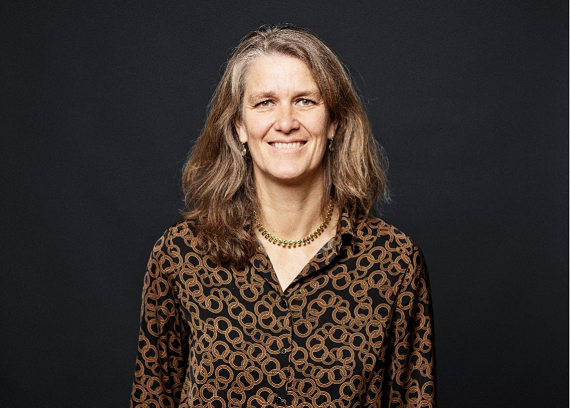

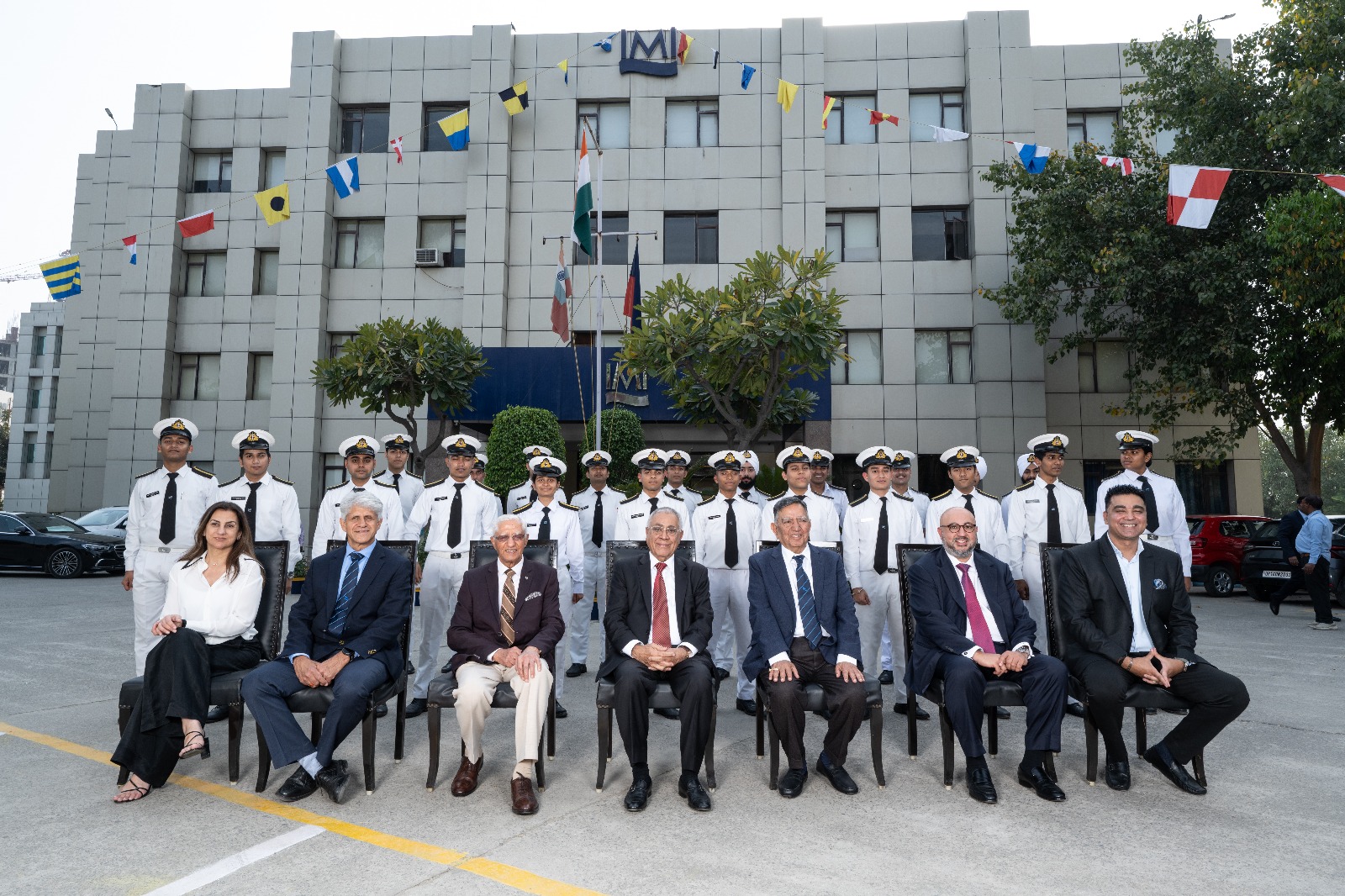 Dr. Harry S. Banga and Mr. Angad Banga of The Carav
Dr. Harry S. Banga and Mr. Angad Banga of The Carav 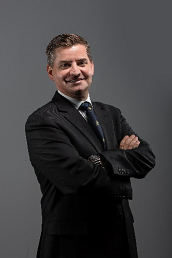 Liberian Registry Welcomes Kyle Hurst as Senior Vic
Liberian Registry Welcomes Kyle Hurst as Senior Vic  KATALIST: Accelerating Green Shipping through Innov
KATALIST: Accelerating Green Shipping through Innov  Revealing the risks: digital solutions for complian
Revealing the risks: digital solutions for complian 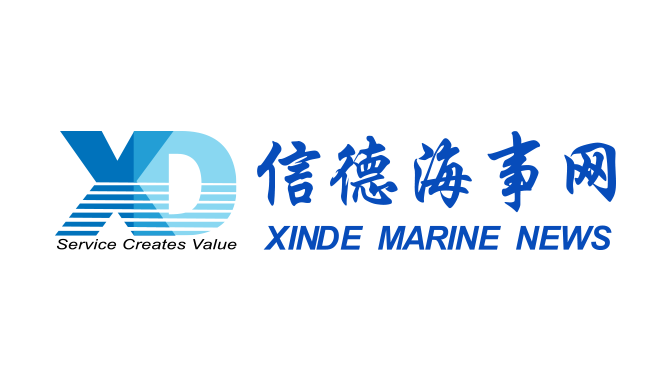 Beibu Gulf Port Chairman Zhou Shaobo Passes Away at
Beibu Gulf Port Chairman Zhou Shaobo Passes Away at 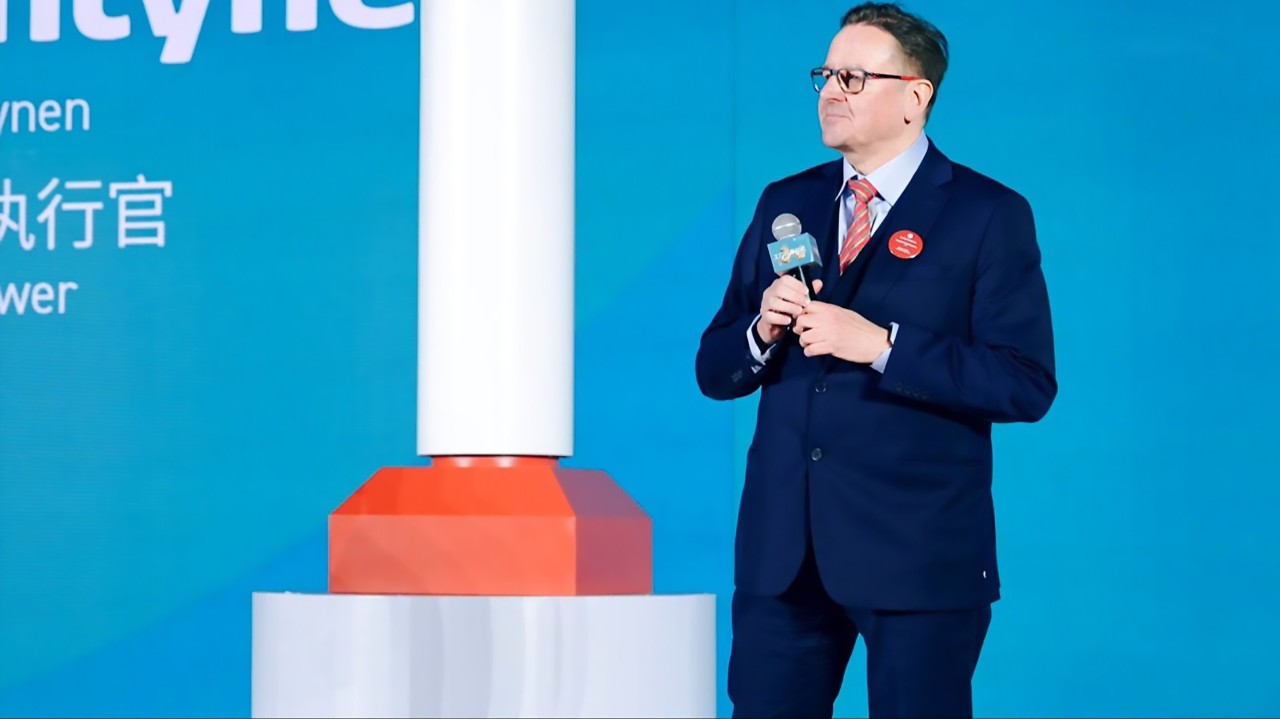 Exclusive Interview with Norsepower CEO: Bringing S
Exclusive Interview with Norsepower CEO: Bringing S